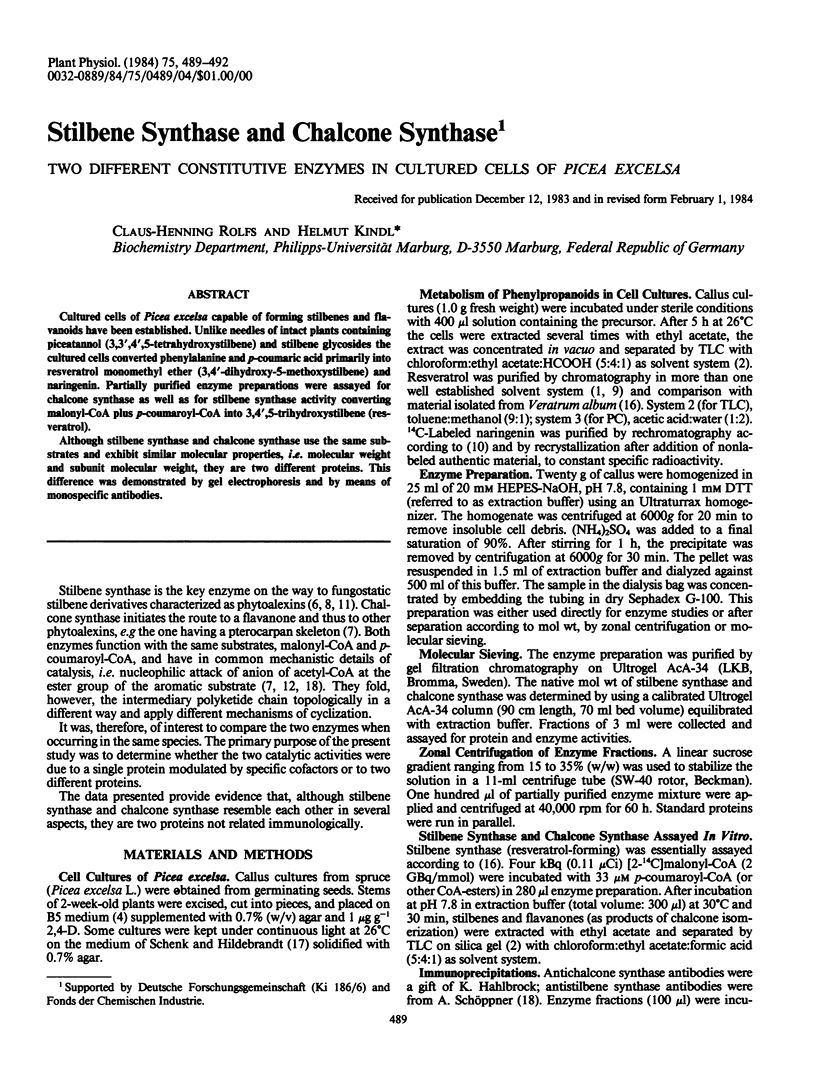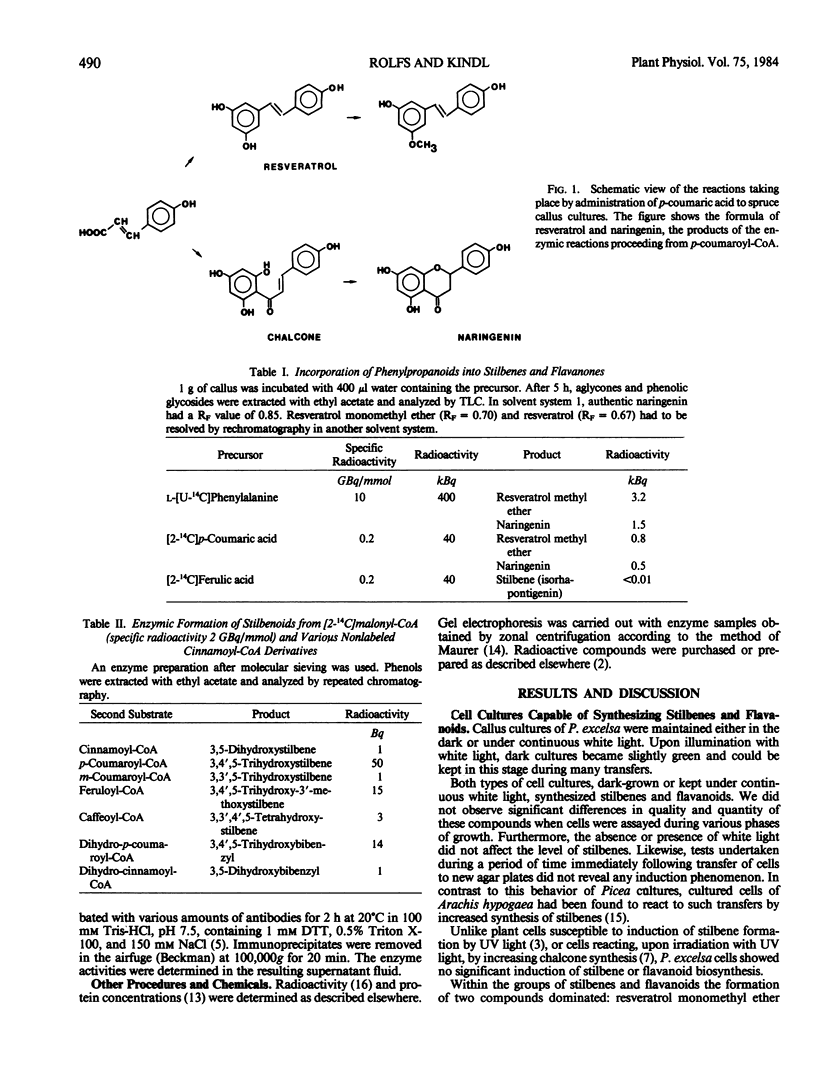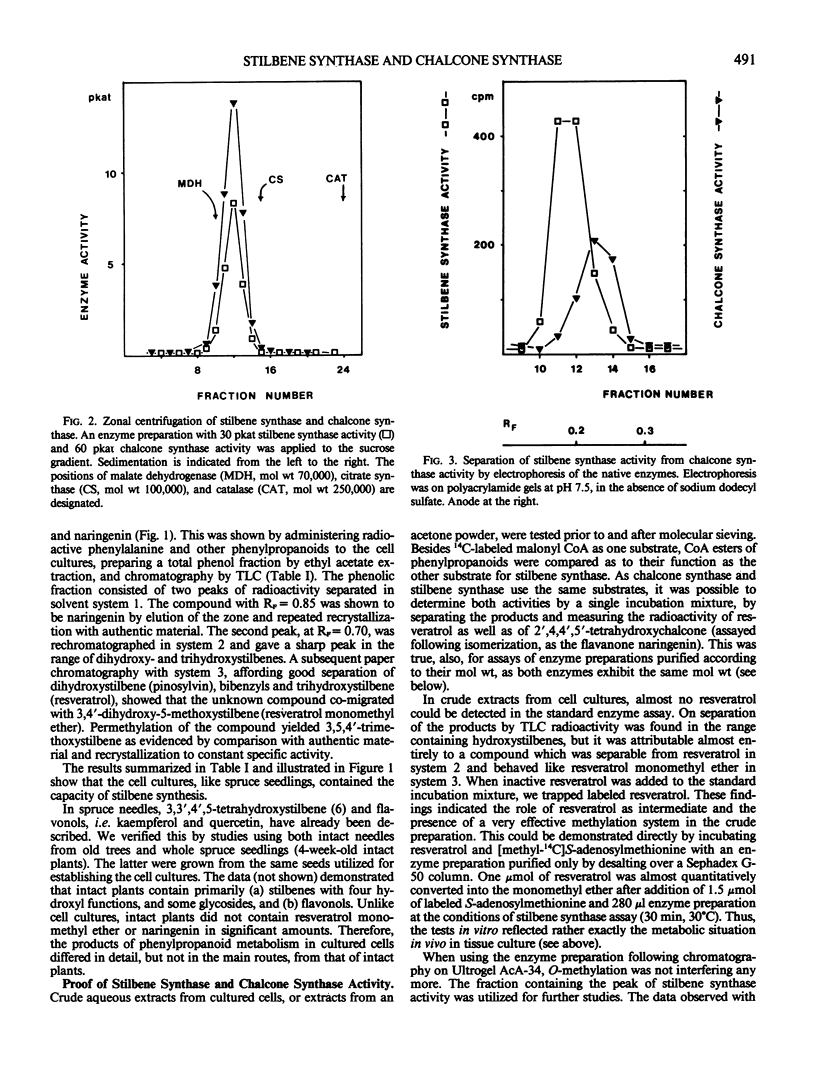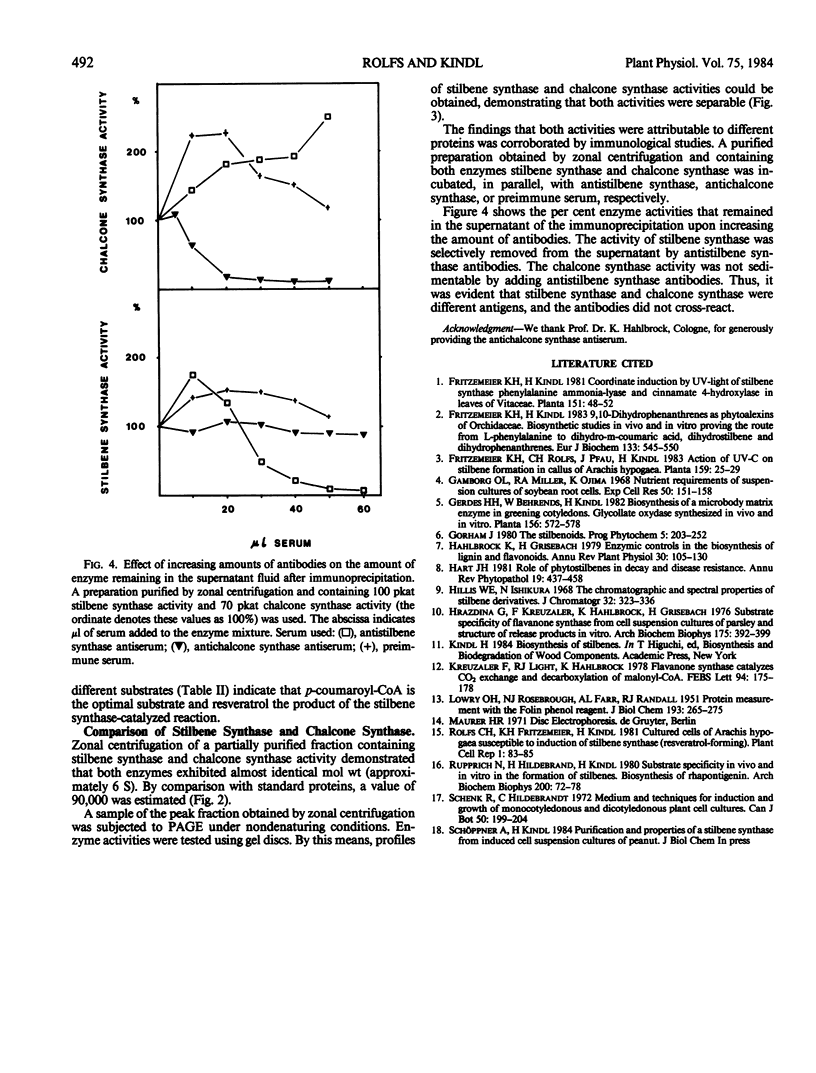Abstract
Cultured cells of Picea excelsa capable of forming stilbenes and flavanoids have been established. Unlike needles of intact plants containing piceatannol (3,3′,4′,5-tetrahydroxystilbene) and stilbene glycosides the cultured cells converted phenylalanine and p-coumaric acid primarily into resveratrol monomethyl ether (3,4′-dihydroxy-5-methoxystilbene) and naringenin. Partially purified enzyme preparations were assayed for chalcone synthase as well as for stilbene synthase activity converting malonyl-CoA plus p-coumaroyl-CoA into 3,4′,5-trihydroxystilbene (resveratrol).
Although stilbene synthase and chalcone synthase use the same substrates and exhibit similar molecular properties, i.e. molecular weight and subunit molecular weight, they are two different proteins. This difference was demonstrated by gel electrophoresis and by means of monospecific antibodies.
Full text
PDF



Selected References
These references are in PubMed. This may not be the complete list of references from this article.
- Fritzemeier K. H., Kindl H. 9,10-Dihydrophenanthrenes as phytoalexins of Orchidaceae. Biosynthetic studies in vitro and in vivo proving the route from L-phenylalanine to dihydro-m-coumaric acid, dihydrostilbene and dihydrophenanthrenes. Eur J Biochem. 1983 Jul 1;133(3):545–550. doi: 10.1111/j.1432-1033.1983.tb07498.x. [DOI] [PubMed] [Google Scholar]
- Gamborg O. L., Miller R. A., Ojima K. Nutrient requirements of suspension cultures of soybean root cells. Exp Cell Res. 1968 Apr;50(1):151–158. doi: 10.1016/0014-4827(68)90403-5. [DOI] [PubMed] [Google Scholar]
- Hillis W. E., Ishikura N. The chromatographic and spectral properties of stilbene derivatives. J Chromatogr. 1968 Jan 23;32(2):323–336. doi: 10.1016/s0021-9673(01)80498-2. [DOI] [PubMed] [Google Scholar]
- Hrazdina G., Kreuzaler F., Hahlbrock K., Grisebach H. Substrate specificity of flavanone synthase from cell suspension cultures of parsley and structure of release products in vitro. Arch Biochem Biophys. 1976 Aug;175(2):392–399. doi: 10.1016/0003-9861(76)90526-9. [DOI] [PubMed] [Google Scholar]
- LOWRY O. H., ROSEBROUGH N. J., FARR A. L., RANDALL R. J. Protein measurement with the Folin phenol reagent. J Biol Chem. 1951 Nov;193(1):265–275. [PubMed] [Google Scholar]
- Rupprich N., Hildebrand H., Kindl H. Substrate specificity in vivo and in vitro in the formation of stilbenes. Biosynthesis of rhaponticin. Arch Biochem Biophys. 1980 Mar;200(1):72–78. doi: 10.1016/0003-9861(80)90332-x. [DOI] [PubMed] [Google Scholar]


